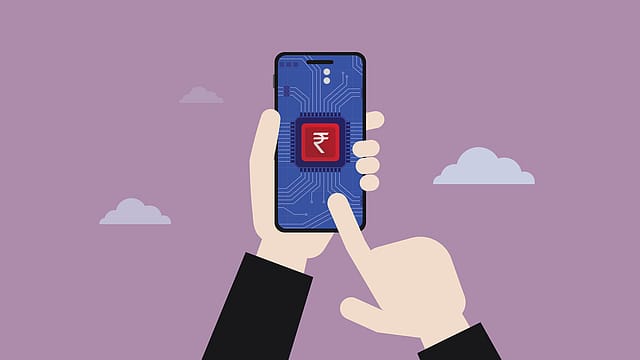Amazon, Google among 32 entities granted payment aggregator licence
ADVERTISEMENT

The Reserve Bank of India (RBI) has given in-principle approval to 32 companies, including Amazon and Google, to operate as 'online payment aggregators'.
The central bank has said while scrutiny of applications of such entities is an ongoing process, for the purpose of disseminating information and ensuring transparency, it has published the list of entities granted in-principle authorisation to act as ‘online payments aggregators’.
Seeking approval from the RBI is an ongoing process under the PSS Act. The RBI says the list will be updated on a fortnightly basis. It has advised that all stakeholders must transact with only the payment aggregators that have received approval from the RBI or those whose application is currently ‘under process’.
Stakeholders may transact with new PAs only after these entities have received ‘authorisation’ under Section 7 of the PSS Act from the Reserve Bank of India, it adds.
To bring online payment aggregators under the regulatory fold, the RBI had issued circulars on March 17, 2020, and March 31, 2021, on “Guidelines on Regulation of Payment Aggregators and Payment Gateways”. These suggested the online non-bank payment aggregators – existing as on March 17, 2020 – were required to apply to the RBI to seek authorisation.
The existing PAs that can operate as online payment aggregators are Amazon (Pay) India Private, Zomato Payments Private, Stripe India Private, Reliance Payment Solutions, Razorpay Software Private, Pine Labs Private, Infibeam Avenues, Google India Digital Services Private, Cashfree Payments India Private, among others.
The payment aggregators whose application is still under process are PhonePe Private, BhartiPay Services, among others.
The companies whose applications have been returned by the RBI are Freecharge Payment Technologies Private, PayTM Payments Services, PayU Payments Private and Tapits Technologies Private Ltd. While Paytm's application was returned on November 25, 2022, the application of PayU and Freecharge Payment was returned on January 10, 2023, and February 10, 2023, respectively.
As per the RBI, payment aggregators must fulfil the criteria for capital requirements in order to receive the authorisation. PAs must have a minimum net worth of ₹15 crore in the first year of application, which subsequently climbs up to ₹25 crore after the second year.
The promoters of such entities must also satisfy the 'fit and proper criteria' prescribed by the RBI. The central bank checks the ‘fit and proper’ status of the applicant entity and management by obtaining inputs from other regulators, government departments, etc.
Separately, to put a stop to illegal methods being adopted by recovery agents against loan defaults, the RBI has said digital lenders must convey the name and other details of empanelled recovery agents authorised to contact the borrower in case of loan default.
If the loan turns delinquent, and the recovery agent has been assigned to the borrower, the particulars authorised agents must be communicated to the borrower "through email/SMS before the recovery agent contacts the borrower for recovery", the RBI said.